Latest news
26 April 2018
Safe drinking water for all with smart, new drinking water technologies
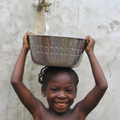
Access to safe drinking water is a global challenge, particularly affecting the rural poor in developing countries. This urgent problem requires new, smart solutions for the removal of a wide range of contaminants of global concern, such as arsenic, fluoride, pathogens and antibiotic resistant genes.
26 April 2018
Professor Mark van Koningsveld holder of Ports & Waterways chair

Prof.dr.ir. Mark van Koningsveld has been installed as the new holder of the chair of Ports & Waterways. Van Koningsveld is taking over from prof. Ir. Tiedo Vellinga and will continue the chair’s main brief which is to conduct research into the areas of port infrastructure and design and nautical matters.
19 April 2018
Hurricane Harvey: Dutch-Texan research shows most fatalities occurred outside flood zones
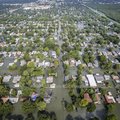
A Dutch-Texan team found that most Houston-area drowning deaths from Hurricane Harvey occurred outside the zones designated by government as being at higher risk of flooding: the 100- and 500-year floodplains. Harvey, one of the costliest storms in US history, hit southeast Texas on 25 August 2017 causing unprecedented flooding and killing dozens. Researchers at Delft University of Technology in the Netherlands and Rice University in Texas published their results today in the European Geosciences Union journal Natural Hazards and Earth System Sciences.
12 April 2018
Dutch contribution to European Plate Observatory System awarded
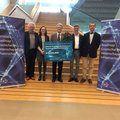
The department of Geoscience & Engineering is part of EPOS-NL, the Dutch contribution to the European infrastructure for geosciences, natural hazards and geo-resources. This project is one of the ten awarded proposals in the National Roadmap for Large-Scale Scientific Infrastructure by NWO.
12 April 2018
Ruisdael Observatory: measuring the Dutch atmosphere on a 100m scale

‘Weather’ is the result of a combination of many diverse factors, such as solar radiation, the concentration of greenhouse gases, air quality and humidity, local building density or vegetation, wind direction and a whole host of underlying physical and chemical processes.
29 March 2018
Micro-CT scanner reveals secrets hidden in prehistoric eggs
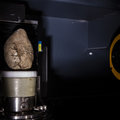
25 March 2018
Inaudible infrasound also useful for weather and climate forecasts
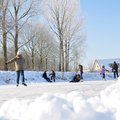
Research by Pieter Smets of TU Delft and the KNMI shows that infrasound can be used for weather and climate forecasts. These inaudible low sound waves can be used to gain a better picture of the stratosphere, which can barely be measured in any other way. On Wednesday 28 March, Smets will be awarded his PhD at TU Delft for his work on this subject.